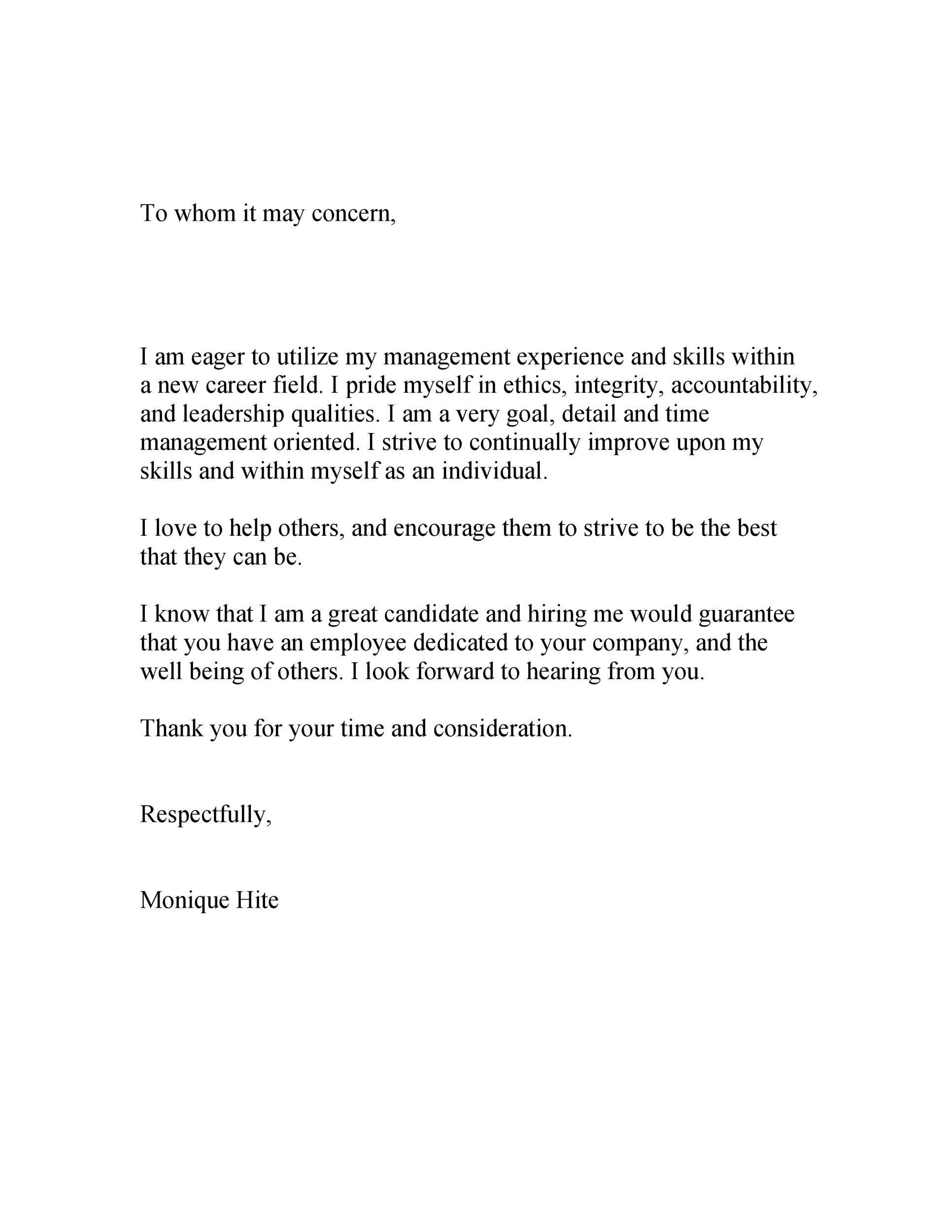

I agree completely with this opinion, and I often say so in business writing workshops. In short, employers will think you're lazy and your cover letter will end up in the trash. Impersonal salutations like "Dir (sic) Sir/Madam" or "To Whom It May Concern" show an employer two things: The first is that you lack the initiative to locate the appropriate contact the second is that you show a disregard for any research needed to be done on your part. Most job seekers know that, whenever possible, it's best to address your cover letter to the person who has the power to hire you-or at least the person who can bring you in for an interview.īut, all too often, if a name isn't listed on a job posting, the job seeker resorts to an old-fashioned salutation like, "To Whom It May Concern." What they don't know, is that this approach can sometimes be considered the kiss of death. Of course, this heading or caption is written only when you are writing a letter to a company or firm on you own behalf, or a reference or a recommendation for a client, especially when you do not know the recipient of the document. I like what Rachel Zupek said recently in an article titled "Is 'To whom it may concern' the kiss of death?" This appeared on the blog called the Work Buzz. Actually, the the proper way to write To Whom it May Concern is to use capital letters for the entire caption: TO WHOM IT MAY CONCERN.

It says the writer took some time to prepare, and it also allows the mail room of a large company to figure out where to deliver the letter. This title (e.g., Dear Director of Human Resources OR Dear Publications Assistant) should be used in the salutation and also on the envelope. If this is not possible, the writer should create a title that fits the situation.

To Whom It May Concern is the correct way of addressing. The other part of my answer was that I NEVER use "To Whom It May Concern," and I do not recommend it in my workshops because it is an antiquated form and because I think the writer should make an effort to call or e-mail to find out the name of the person being addressed. Community Answer Yours faithfully if you do not know the name of the person, Sincerely if you do. "If you don't know a reader's gender, use a nonsexist salutation, such as 'To Whom It May Concern.'"Ģ. This is my opinion, and it is also the opinion of the Owl at Purdue, which is a good grammar reference. If you must use this salutation, all of the words should be capitalized. One of my readers asked yesterday if all of the words in "To Whom It May Concern" should be capitalized.


 0 kommentar(er)
0 kommentar(er)
